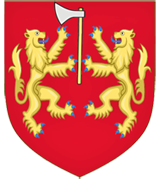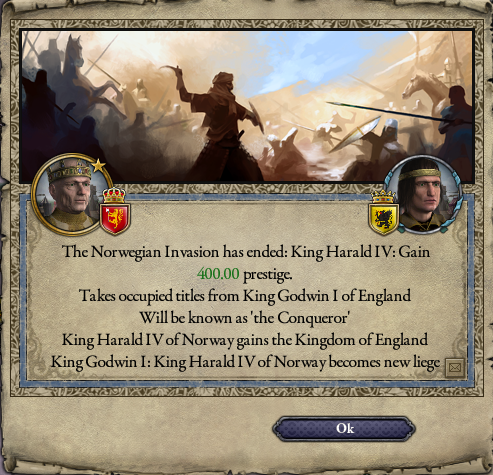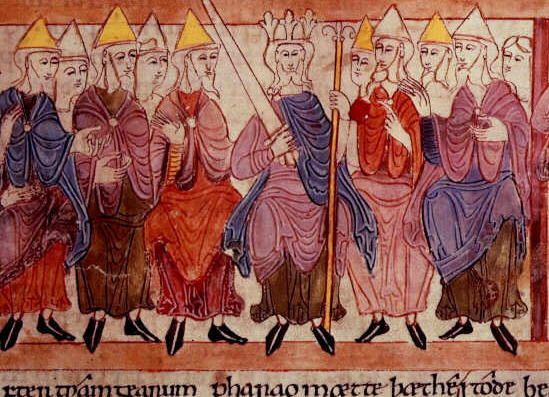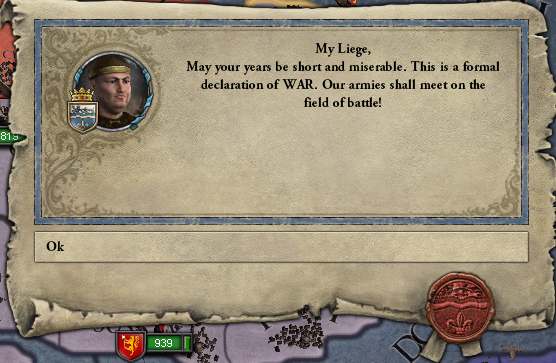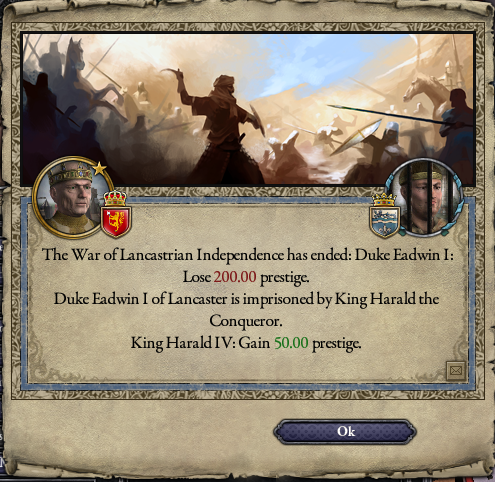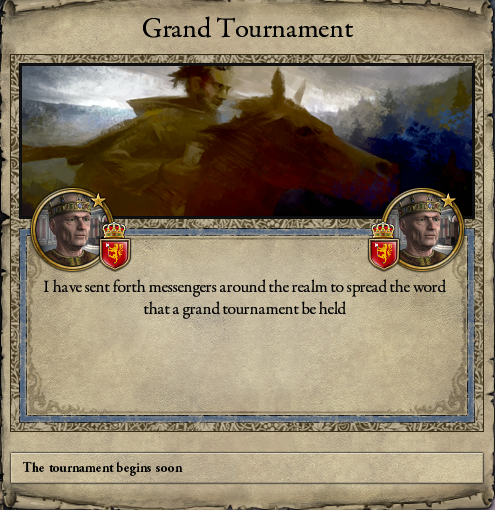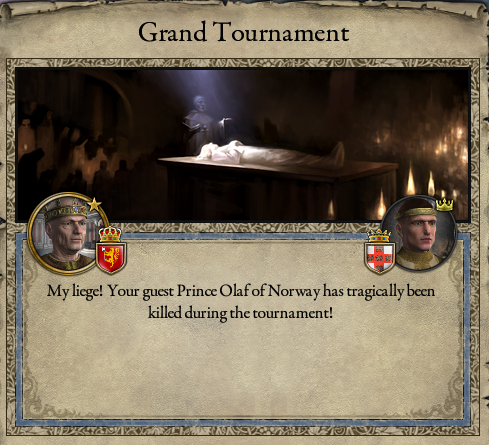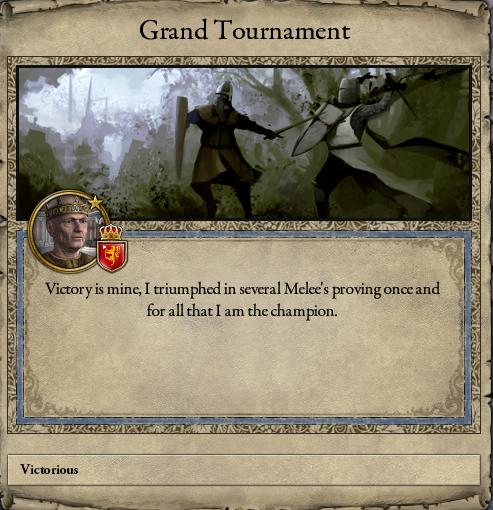Part ii: The Bloody Field
To celebrate his victory, and bring the nobility of England and Norway together, (and likely to avoid boredom for a wandering warrior of a king) Harald organized a tournament in Middlesex. The goal was simple, get all the greatest warriors of England together in one place, and remind them who ruled now. It was an interesting blending of cultures, the heirs to the Viking warriors of old clashing in fake battle with the men they had just recently defeated for real. By all accounts, the tournament was a massive success for the King. It not only allowed him to show off his recently captured rival Eadwin, but also force another pressing issue, the issue of succession. Olaf, the regent of Norway, arrived for the tournament along with most of the other powerful Earls of Norway (And many neighboring kingdoms as well). Calling the much-reduced Witan together after the first day of fighting Harald broached the topic. Through debate, threats and bribes, Harald convinced the Witan to accept whoever Harald named as heir.
The conference of nobles turned out to be timely. The next evening, Olaf, Harald's heir, was killed. It was not only a shock to Harald, but to the young kingdom. The direct male line of Harald the Conqueror was extinguished before it had begun. While this had never been an issue in Norway (Harald himself having only very dubious family genealogy) it could prove to be one in England. Fortunately, the Witan had just approved Harald naming his heir, not his son as heir. And thanks to a very devious daughter, a series of fortunate circumstances and the tournament's final battle, the succession of the English throne would be secured. It was at this point that a rather singular figure in history appeared. Harald's eldest daughter, Ragnhild, called in the Christian world Mary. She had been married to the Duke of the Isles' eldest son Domnall MacHarald. It was a marriage of convenience and power, and provided Harald with a powerful ally. And it provided Ragnhild with a means to an end, that end being the thrones of Norway and England.
Ragnhild arrived at the tournament with a flurry and show far greater than her father. She arrived with her husband, and a virtual army of supporters, hyrdmen and nobles. Immediately she set about expanding her satellite of support. Chief among them, Estmond, the younger brother of the influential and still seething Eadwin. It would prove to be a friendship which would shape the face of England. Ragnhild was instantly popular, charismatic and sharp tongued. And it made the grim decision facing Harald far easier. Ragnhild was his heir, the only way to keep his family in power. Both of his sons were dead, he had no male grandchildren, and his daughter was his only answer. Some of the nobility, including that of Norway, supported the move, Ragnhild already had two daughters, there was no reason to suppose she could not have sons. Many of the Saxon nobles were unwilling, or unable to answer the call to resist. Only Eadwin, despite his brother's protestations, could resist. He challenged the new king to prove his family's personal fortitude in the tourney the next day. Should Harald win in the melee, Eadwin would agree to recognize the right of Raghnild to rule.
Needless to say, Harald did win, to the embarrassment of Eadwin and his now dwindling allies. The evening after his victory, Harald called for Eadwin to appear. The lord of the North did not comply. Instead he fled to the north and once again raised the flag of rebellion. For most of the Saxon nobility, it was an annoyance and a nuisance, not a true rebellion. In fact, Gyrth, former rebel though he was, agreed to march north in support of Harald against the rebel Yorkists. Throughout 1074, Eadwin traveled the North and attempted to gain allies in his struggle. By January 1075, Eadwin had raised around 1100 men and marched south, seeking once more to remove the Viking invader from his throne. It would be a decade before the matter would finally put to rest, but the battle itself would be decided by the end of the month as Harald marched his allies to engage the invading rebels.

